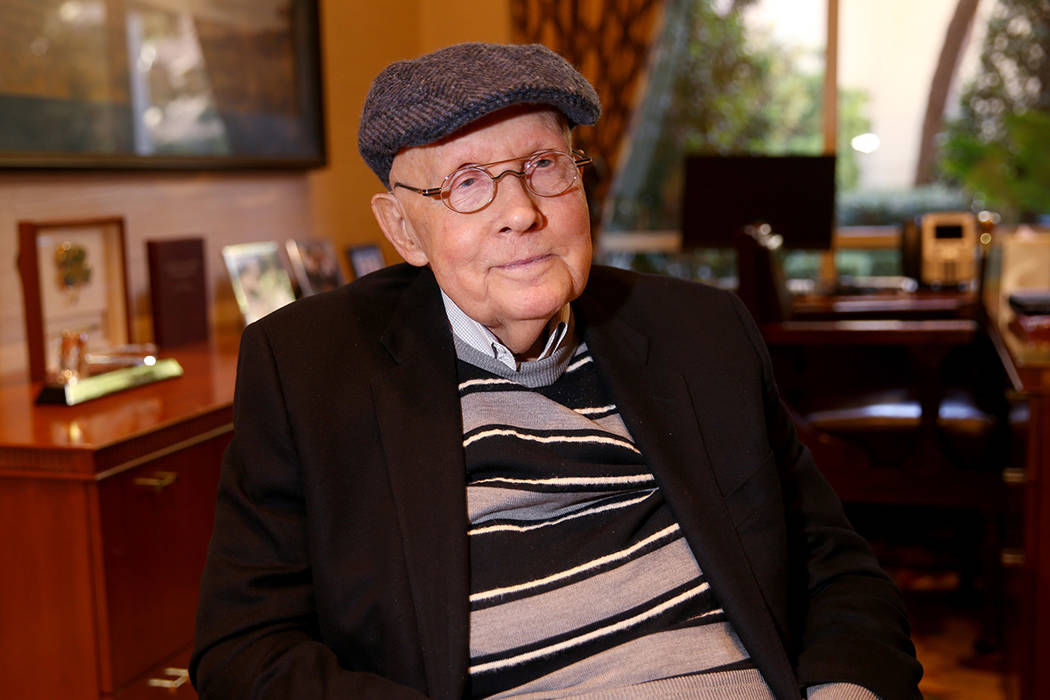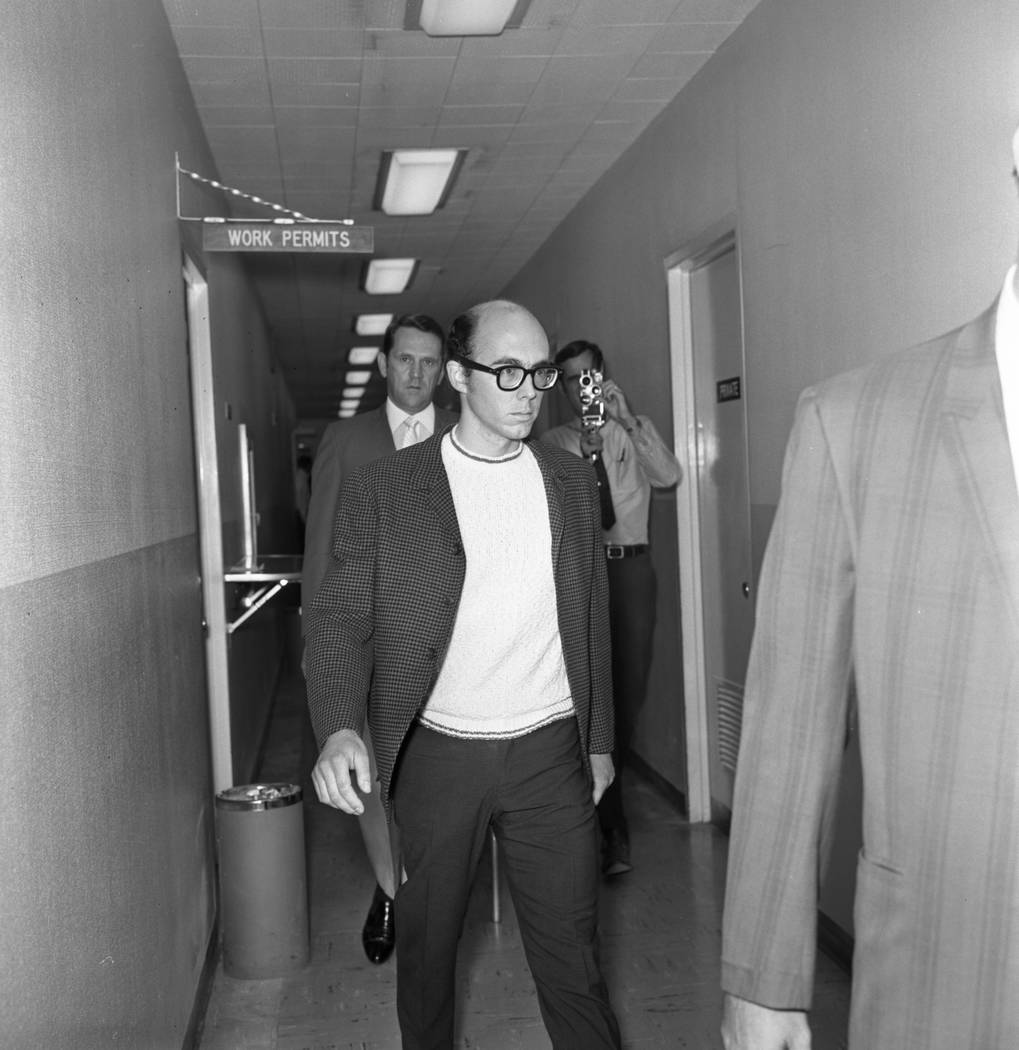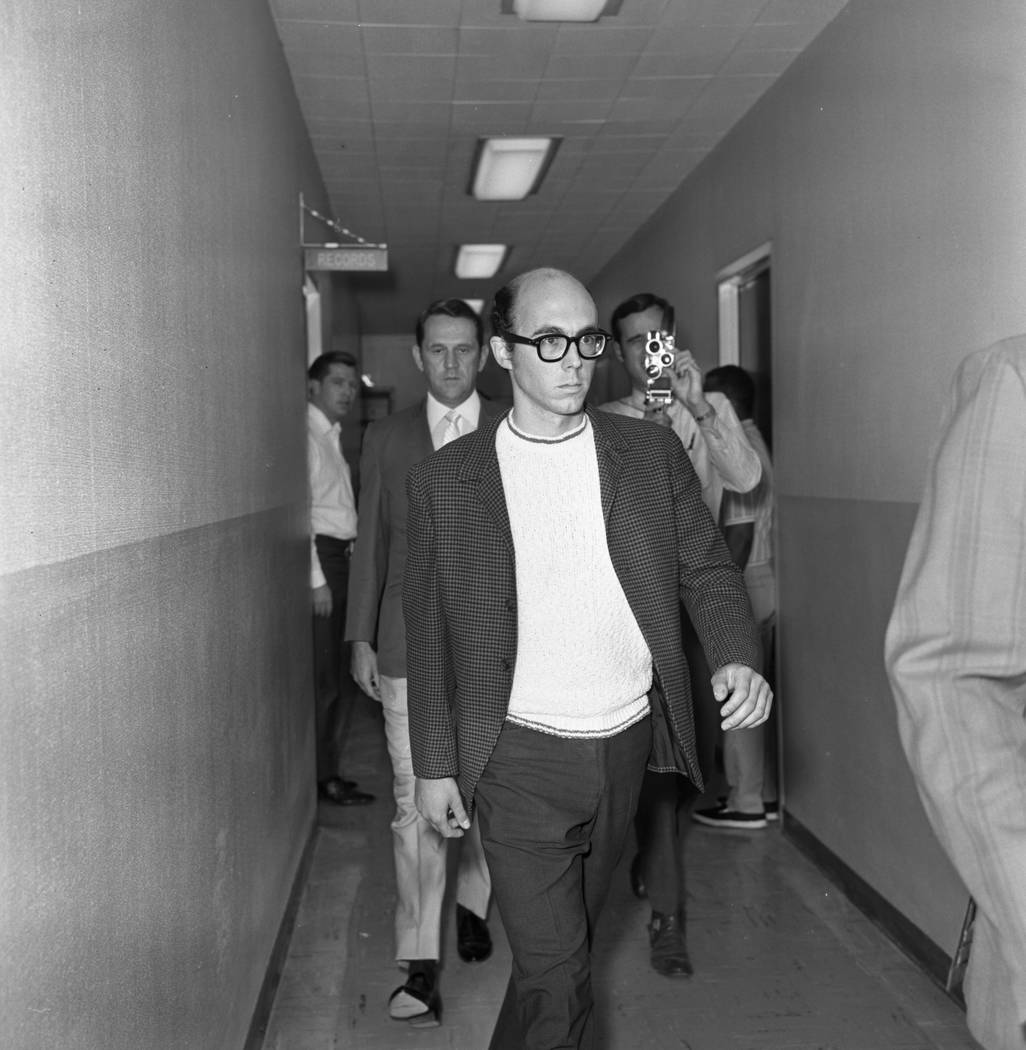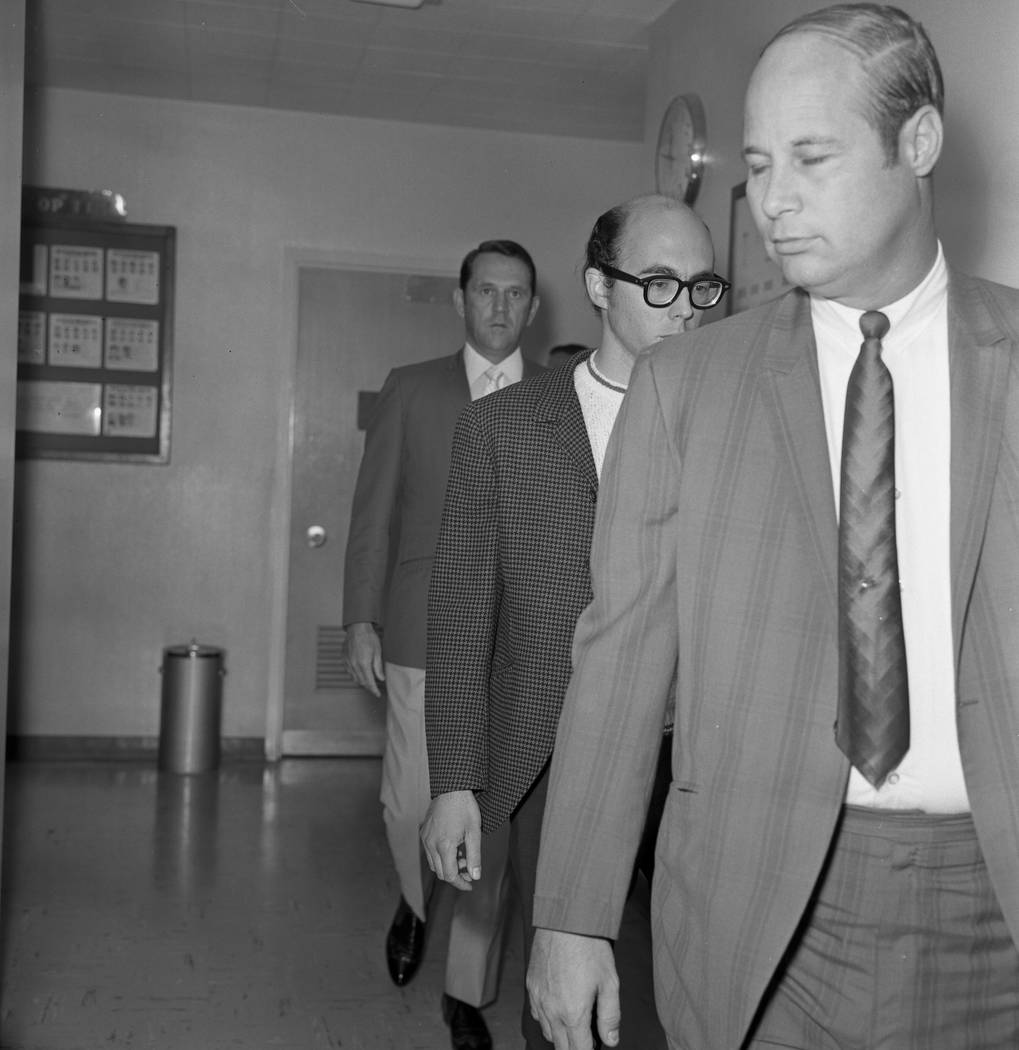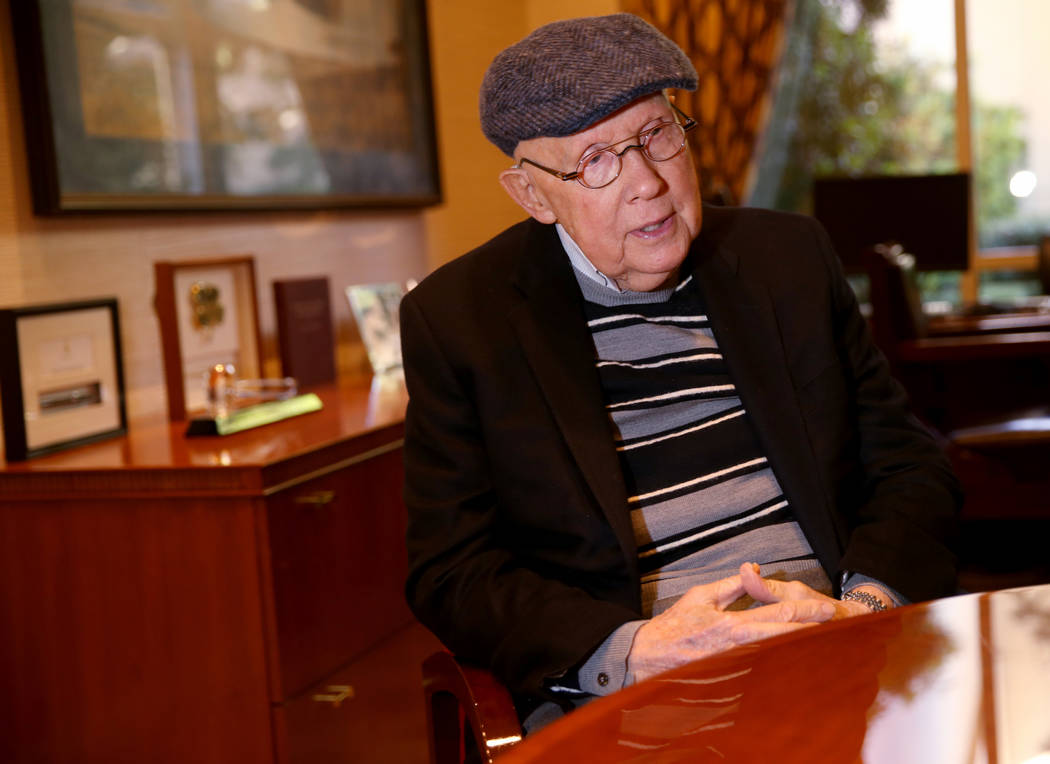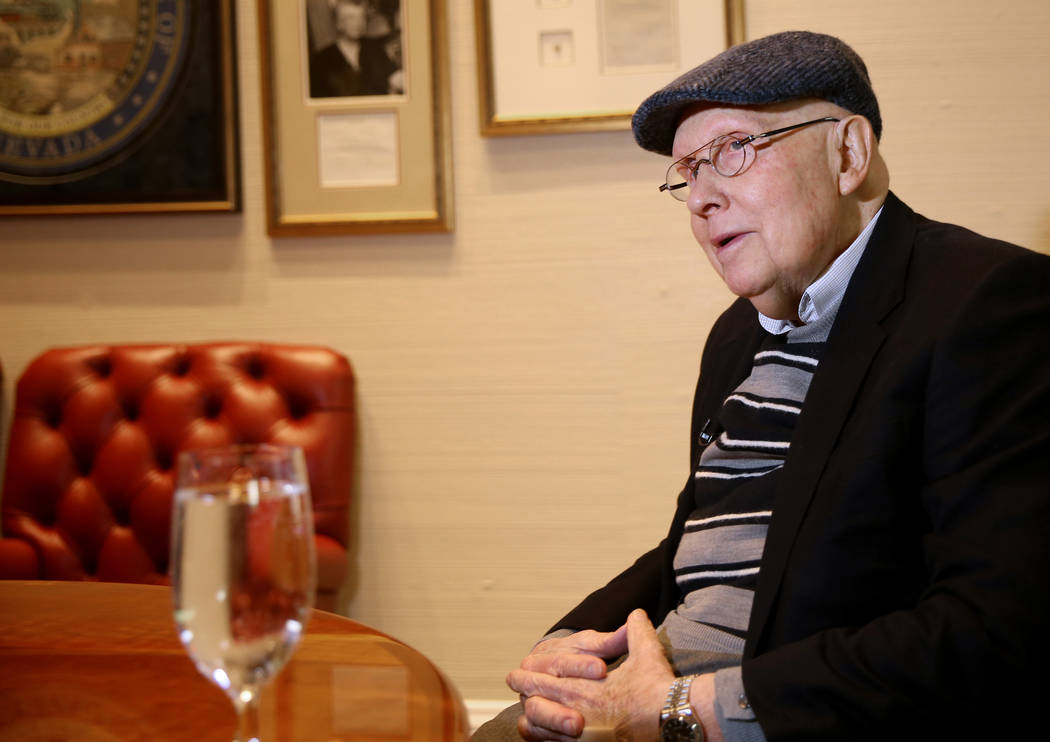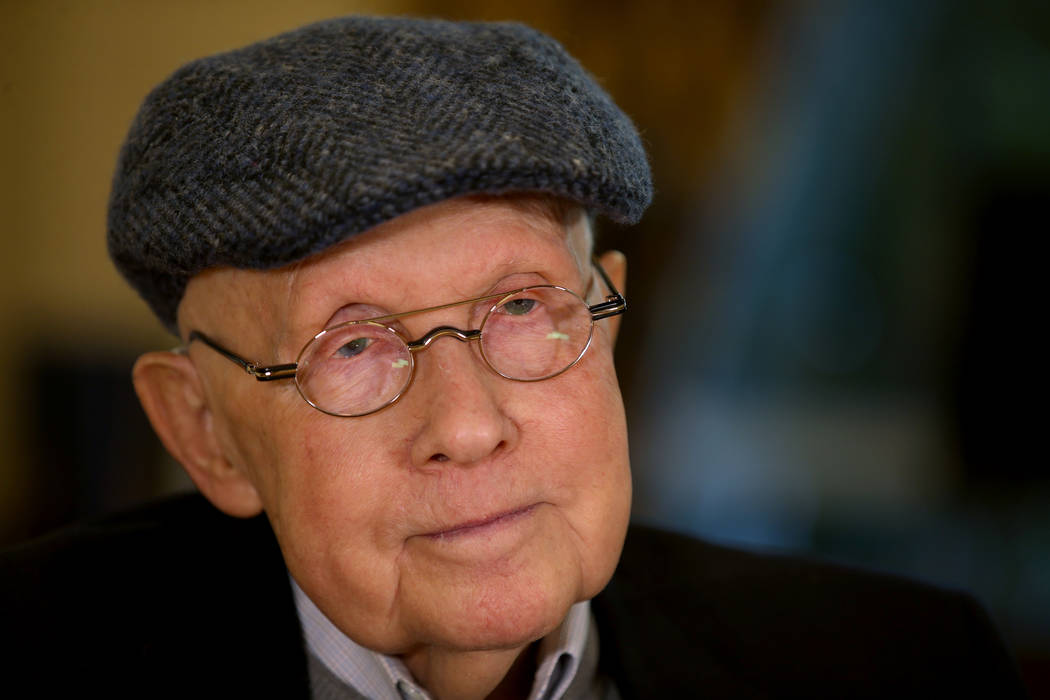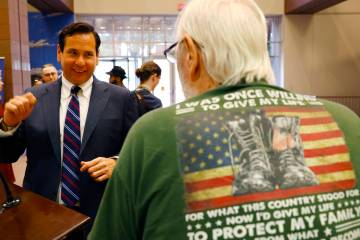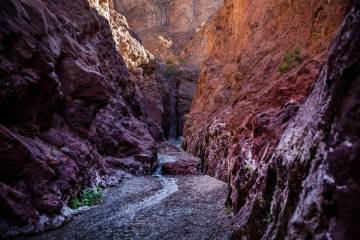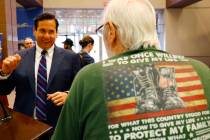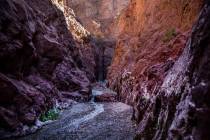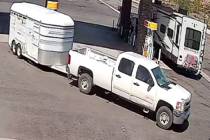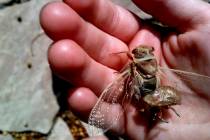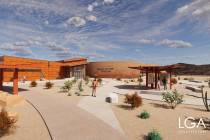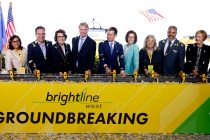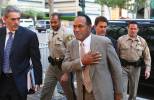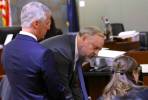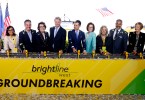Harry Reid recalls one of his strangest cases as a young attorney
Fifty years ago, a young Las Vegas attorney took a case that he would describe decades later as “the most challenging and bizarre case of my lawyer life.”
It involved a 25-year-old named Russell Payne, who was accused of killing his parents, a prominent former Las Vegas couple, during the summer of 1969. A then-novel legal defense. Even a daring escape.
That attorney: former Nevada Sen. Harry Reid, who recently recalled the almost-too-strange-to-be-true chapter of his career, which Reid also writes about in his 2008 memoir, “The Good Fight: Hard Lessons from Searchlight to Washington.”
Martin Payne was a physician in Las Vegas — the first orthopedic surgeon here, Reid recalled — and one-time chief of staff at Sunrise Hospital Medical Center. His wife, Emmalyn Payne, was a journalist, Reid said, who wrote for the Las Vegas Review-Journal.
Martin Payne was “kind of an eccentric man. For example, his doormat didn’t say ‘Welcome,’ it said ‘Stay Away,’ ” Reid said. He writes that Payne “loved to make little people feel even smaller” and that Payne and his wife “were totally without affection toward friends, neighbors, their only child Russell, and each other.”
Russell was equally eccentric but “a very smart young man ,” said Reid, who previously had defended Russell in a reckless driving and a firearms case.
During the mid-’60s, Martin and Emmalyn Payne moved to Jackson Hole, Wyoming. The son joined them later. But because he tended toward “living the life of a playboy, running with a Strip crowd,” he hated it, Reid said.
Then, in the summer of 1969, “I heard from one of his friends that he was in trouble and I should go up to Jackson Hole,” Reid said.
Russell was being held in jail on a DUI charge, but authorities also suspected his involvement in the disappearance of his parents, who, according to an Associated Press account, had gone missing June 12. No bodies had been found, but police had found Martin Payne’s vehicle, its interior smeared with blood.
Reid, who had been practicing law for about five years, traveled to Jackson Hole and found it to be “not a good place for strangers.” Townspeople didn’t like Russell Payne, Reid recalled, and they didn’t like him, either.
Reid expected that murder charges would come, and Reid wanted to get Russell Payne back to Las Vegas before it would be impossible for him to leave Wyoming. Reid bought tickets on a commercial flight to Las Vegas, and, he writes, “everyone in Jackson Hole seemed to know it.”
But when police arrived at the airport, they found only Reid, who had arranged for friends of the son to drive him to Idaho and then have him fly back to Las Vegas on a private plane.
Back in Las Vegas, Reid started preparing a murder defense. He recalls that one expert he consulted was intrigued that Russell Payne had been taking a prescription drug called Deaner, which, Reid said, his father was giving him in hopes that it would reduce his desire for alcohol.
As Reid consulted experts and medical literature, he found that Deaner could induce hypothalamic seizures, particularly when accentuated by alcohol use, in which a person could go into a violent rage but not recall it afterward.
Payne claimed to have no memory of killing his parents. Reid arranged for medical tests, which revealed that Russell’s brain function changed dramatically when he was administered Deaner and measured amounts of alcohol.
According to the AP, the bodies of Martin and Emmalyn Payne were found July 27 near their home. Both had been shot and beaten about the head, according to Reid.
“So we go back to Wyoming and they’re trying to come up with some sort of trial date,” Reid writes. “They don’t want to go to trial. It’s a small community. I guess they assumed (I was) this hotshot lawyer from Las Vegas. Now keep in mind I was a pretty new lawyer.”
Reid’s research and the defense he prepared prompted the district attorney to accept Russell Payne’s plea of involuntary manslaughter. He was sentenced to 20 years in Wyoming State Penitentiary in Rawlins, Wyoming, where, Reid notes, Butch Cassidy was a charter alumnus.
“If you wanted to find a place to have a prison, that would be the place,” Reid said. “It’s the most miserable, cold, windy place imaginable. I’m sure maybe there is a place colder than that, but there aren’t too many.”
Russell Payne was “a model prisoner,” Reid said. “He took up weightlifting. I would go visit him. He became huge, like a bodybuilder.”
He was released after serving six years and returned to Las Vegas. Reid occasionally would hear about how he was doing from one of Russell Payne’s remaining friends.
“Russell lived alone,” Reid said. “I think his life became very difficult. He had all these friends, and they dropped him, so he became kind of a loner.”
Until his death several years ago, he was a model citizen, Reid said, and “never publicly acknowledged killing his parents. Never.”
Reid writes in his memoir that he “came out of this case feeling a few years older. The experience had changed me, as a lawyer and as a man. More than ever before, I felt a compulsion to follow the facts, wherever they led, however uncomfortable the truth might be, however long it takes, however much it costs.”
Reid said somebody once asked him what sorts of cases he took when he was a lawyer. “Anything I could get,” he said. “I took a lot of cases a lot of people wouldn’t take.”
Like many of those cases, Russell Payne’s “gave me a better perspective of what life is about,” Reid said, and reinforced to him the defense attorney’s obligation to represent a client as best as he or she can.
“Did I ever believe Russell Payne did not kill his parents? No, I didn’t believe that. But that is not my responsibility,” he said. “The job of a lawyer is, not to do anything dishonest, but do everything you can (for a client).”
Contact reporter John Przybys at jprzybys @reviewjournal.com or 702-383-0280. Follow @JJPrzybys on Twitter.



